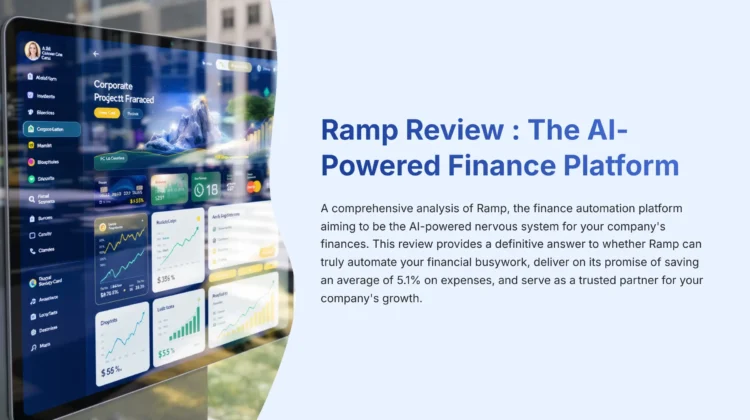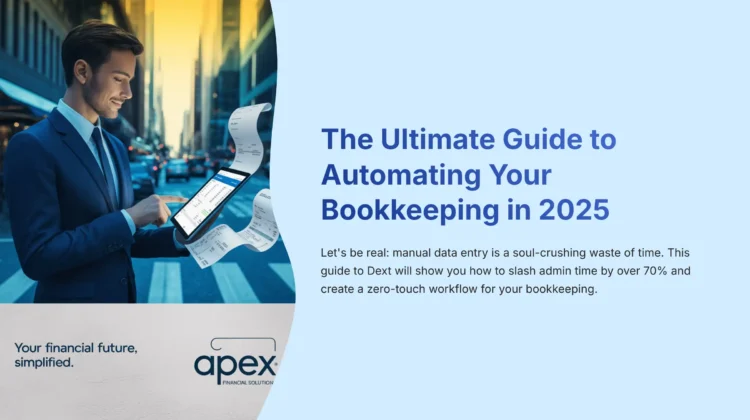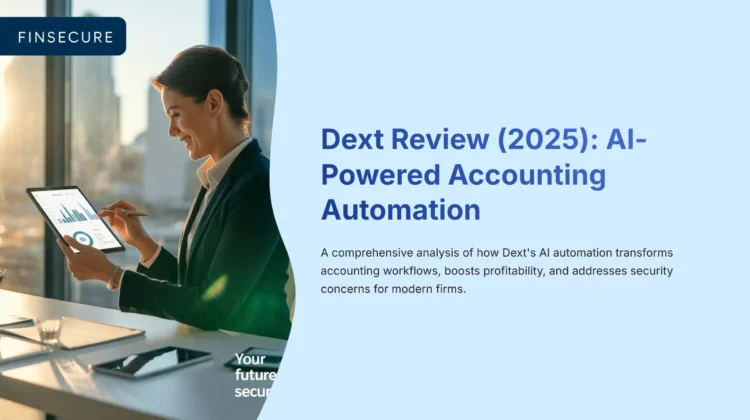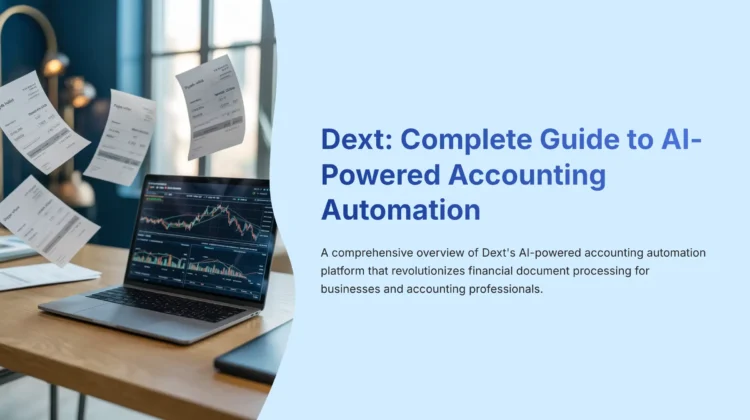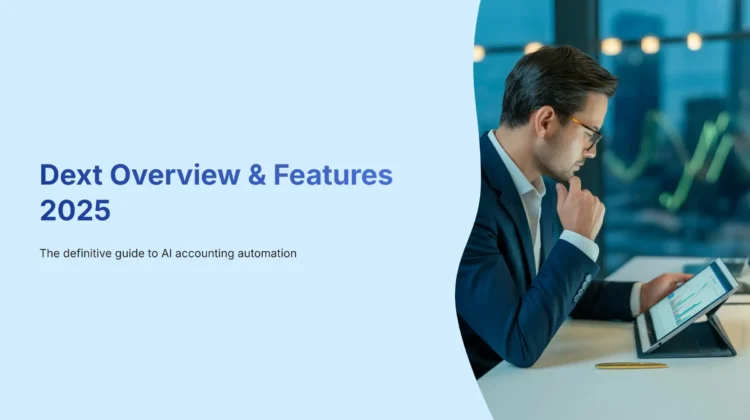Is Ramp the Right AI Finance Platform for Your Business? This 2-Minute Quiz Reveals the Answer! Previous Next Expert Analysis: Ramp AI Finance Platform Review 2025 This isn't just another review of a corporate card. As an expert from Best AI Tools For Finance, I'm providing a deep-dive analysis into Ramp, the finance automation platform ... Read More
Dext Tutorials and Usecase: The Ultimate Guide to Automating Your Bookkeeping in 2025
Is Dext the Right Automation Tool for Your Business?Find Out with Our 'Dext Tutorials and Usecase' Quiz! Previous Next Let's be real: manual data entry is a soul-crushing waste of time. It's what keeps you, the accountant or business owner, stuck in the weeds instead of doing work that actually matters. This guide is your way out. ... Read More
Dext Review (2025): The Professional’s Deep Dive into AI-Powered Accounting Automation
Is Dext the Right Automation Tool for Your Firm?Take This 2-Minute Quiz to Find Out! Previous Next As an expert who has analyzed hundreds of finance tools, I understand the core challenge facing modern accounting firms. The biggest barrier to growth is often the time spent on manual, non-billable tasks like data ... Read More
Dext FAQs: Complete Guide to AI-Powered Accounting Automation
Is Dext the Right AI Finance Tool For You? This Quick Quiz Finds Your Perfect Match! Previous Next Key Takeaways AI-Powered Automation: Dext uses advanced OCR and machine learning to automatically extract data from financial documents with ... Read More
Dext Overview and Features 2025: The Definitive Guide to AI Accounting Automation
Is Dext the Right Accounting Automation Tool for You?This 2-Minute Quiz Reveals the Answer! Previous Next As the founder of Best AI Tools For Finance, my team and I have spent years deep in the world of financial technology. We've seen firsthand how manual data entry can bog down businesses and accounting firms. This is why the ... Read More
AI Tools For Accounting and Bookkeeping
Hey folks, Scott Seymour here. Let's talk about the beast that is accounting and bookkeeping. For years, it’s been a swamp of manual data entry, late-night reconciliations, and the nagging fear that you’ve missed something crucial. It's what makes you get to the end of the day and wonder, "What did I actually get done today?"
Frankly, that old way of doing things is a massive time-suck and a drag on your resources. But here’s the thing: we're at a turning point. The reality is, the future of accounting isn't about being a human calculator; it's about being a financial strategist. And the tools that unlock that future? They're powered by Artificial Intelligence.
At Best AI Tools For Finance, we're diving deep into the world of AI-driven accounting and bookkeeping platforms. These aren't just glorified spreadsheets. We’re talking about sophisticated software that uses machine learning and natural language processing (NLP) to automate the grunt work, giving you back your most valuable asset: your time.
Why AI in Accounting is a Game-Changer
Let's get real. The idea of "AI in accounting" can sound like some big, complicated tech jargon. But it boils down to a simple, powerful idea: letting the machines do what they do best, so you can do what you do best.
Think about it. How much time do you or your team spend on:
- Manual Data Entry: Keying in invoice details, categorizing expenses, and logging receipts. It’s tedious and prone to human error.
- Bank Reconciliation: The soul-crushing task of matching every single transaction.
- Chasing Paperwork: Hounding clients or team members for documents.
This is the low-value, administrative work that AI is built to eliminate. Modern AI accounting tools can automatically extract data from invoices, learn your transaction categories, and reconcile accounts in real-time. This isn't just about saving a few hours; it's about fundamentally changing your workflow, improving accuracy, and reducing operational costs.
For a deeper dive into how specific platforms stack up, check out our detailed AI Tools For Accounting and Bookkeeping Reviews and side-by-side AI Tools For Accounting and Bookkeeping Comparisons.
From Bookkeeper to Business Advisor
Here's the big brain idea: when you automate the routine tasks, you unlock the time and mental space for high-value strategic work. Instead of just recording history, you can start shaping the future.
AI-powered platforms provide real-time dashboards and financial reports that are always up-to-date. This means you can:
- Spot Trends Instantly: Understand your cash flow, profitability, and spending patterns without waiting for a month-end report.
- Improve Decision-Making: Use predictive analytics to forecast financial performance and make smarter, data-driven decisions.
- Enhance Compliance: Many AI tools have built-in features to help manage compliance for things like sales tax, reducing your risk. Speaking of which, for dedicated solutions, you should explore our section on AI Tools For Taxes.
This is the shift from being a reactive bookkeeper to a proactive financial advisor for your own business or for your clients. To see these tools in action, don't miss our practical AI Tools For Accounting and Bookkeeping Tutorials and Usecases.
Key Features to Look For
Navigating the world of AI accounting software can be overwhelming. That's why we've broken down the essential features you should be looking for. Our Overview and Features of AI Accounting Tools guide goes into more detail, but here's a quick rundown:
- Automated Data Capture (OCR & NLP): The ability to scan receipts and invoices and automatically pull the key data. This is foundational.
- Machine Learning for Categorization: The system should learn from your habits to automatically categorize expenses and income, getting smarter over time.
- Real-Time Reconciliation: Continuous matching of your bank feeds with your accounting records.
- Robust Reporting & Analytics: Customizable dashboards and reports that give you actionable insights.
- Seamless Integrations: The platform must connect with your other business-critical systems, like those for AI Tools For Invoicing and Payments and even your AI Tools For Contracts and Legal.
Frequently Asked Questions (FAQs) about AI in Accounting
I get these questions all the time, so let's tackle them head-on. If you have more, our AI Tools For Accounting and Bookkeeping FAQs page is the place to go.
1. Will AI replace accountants and bookkeepers? No, AI is not a replacement; it's a force multiplier. It automates the repetitive, low-value tasks, which empowers accountants and bookkeepers to shift their focus to higher-value services like financial analysis, strategic advising, and client relationship management. It's about enhancing the role, not eliminating it.
2. Is my financial data secure with AI accounting platforms? This is a critical concern, and legitimate AI software providers take it very seriously. Look for platforms that use bank-grade encryption (like 256-bit SSL), two-factor authentication, and comply with data privacy regulations like GDPR. We scrutinize security in all of our reviews.
3. Can AI tools really understand the complexities of my business? Initially, no. But the power of machine learning is in its ability to adapt. By correcting and confirming its suggestions, you are actively "training" the AI. Over time, it learns the specific nuances of your business's revenue streams, vendor relationships, and expense categories, becoming a highly customized and accurate assistant.
4. What is the difference between AI automation and traditional accounting software? Traditional accounting software is a passive tool; it requires you to perform all the data entry and rule-setting manually. AI-driven software is proactive. It uses technologies like Natural Language Processing (NLP) and Robotic Process Automation (RPA) to actively perform tasks for you, such as reading an invoice, suggesting a category, and flagging a potential duplicate payment.
5. How much does AI accounting software typically cost? The cost varies widely based on the features and the target user. Some platforms are designed for freelancers and cost as little as a few dollars a month, while more sophisticated systems for larger SMBs with features like multi-entity accounting and advanced forecasting can be significantly more. The key is to evaluate the ROI—if a tool saves you 10 hours a month, what is that time worth back to you? Our Comparison articles help break down the value proposition of different tools.
